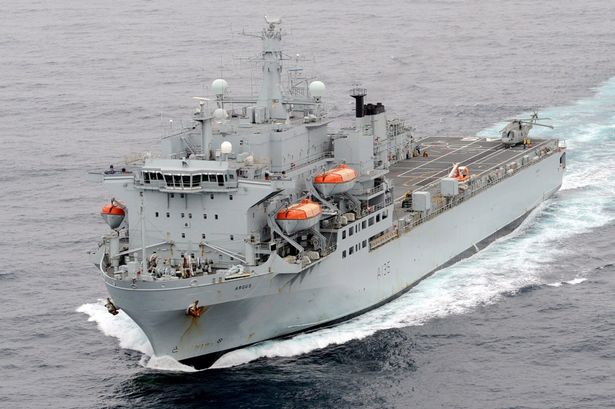This is the first in a series of posts that examine prioritisation within UK Defence. Future posts will consider why the armed forces find it so difficult to prioritise through an examination of the history of prioritisation within defence reviews and SDSRs, before moving on to propose a simple set of priorities to guide the Defence input to the Integrated Review and what that might mean for capabilities within the maritime, land and air domains.
Forty years ago, the Ian Gillan Band was playing a gig at the Rainbow Theatre in Finsbury Park. After opening with their best-known hits ‘Trouble’ and ‘New Orleans’ (they reached numbers fourteen and seventeen respectively in the UK singles chart!), the band were working up to their rendition of Deep Purple’s most famous hit ‘Smoke on the Water’ when frontman Ian Gillan turned to his sound engineer and shouted at the top of his voice “I WANT EVERYTHING LOUDER THAN EVERYTHING ELSE!”
I know that this line only stayed with me because, as a fifteen-year-old kid in a school where heavy metal ruled, it was cool to be able to quote Gillan. However, today I’m grateful that it did, as it is an extremely useful metaphor when trying to understand Defence’s approach to the prioritisation of military capability. In the current, under-resourced environment in which they operate, there is little doubt that the single services’ default is to want ‘everything louder than everything else!’
Resource Management
As @onUKDefence has already recently pointed out, the most essential function of strategy is prioritisation, and, in the UK, scarce resources have to be managed and allocated to deliver the best mitigation of the risks recognised in the National Security Risk Assessment (NSRA).
Unfortunately, evidence suggests that these hard choices are seldom made in the management of military capability. The reason for this is simple. In the Royal Navy, British Army and Royal Air Force reducing capability is anathema, especially if it results in an increase of capability in another environment or domain. It is embedded within the culture of all the single services to fight to retain everything they have, and they do so by arguing that all of their capability is vital and therefore must be the highest priority.
The Importance of Prioritising
Prioritisation can be defined as the process of deciding the relative importance of things according to your goals. If everything is considered the highest priority, it is impossible to apply any ranking. The result is nothing is prioritised. Accordingly, when the Defence budget fails to balance, which recently has been an annual occurrence, there is nothing ‘below the line’ that can be easily given up to preserve what is genuinely vital.
This approach is self-defeating. As the National Audit Office (NAO) regularly points out, it simply leads to short-term spending cuts and re-profiling of expenditure, which results in poor value for money and reduced funding for front-line military activities. As an example, in its report into the 2019 to 2029 Defence Equipment Plan, the NAO highlighted that the cost of delaying the Protector programme will increase from £160 million to £187 million, with a further £50 million cost of retaining existing, less capable equipment until Protector enters service.
Conclusion
Even before the COVID-19 pandemic, the Integrated Review was going to be challenging for Defence. When the government eventually gets around to completing its comprehensive spending review, resources will be considerably scarcer, and the MOD will be scrapping with other departments that now have at least equal, and in some cases, more public support than the armed forces (the most obvious example is the NHS). To avoid losing out, Defence will need to convince a sceptical government that it has taken the hard decisions needed to develop an affordable long-term Equipment Plan. That begins with a dispassionate scrutiny of military capability best placed to mitigate NSRA risks – there must be prioritisation within UK defence.






